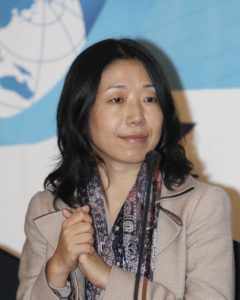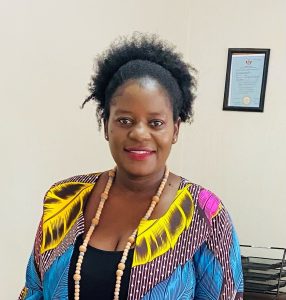Every month Alliance regional representatives provide a report on the latest happenings in philanthropy from their region. Below is roundup for July 2024
 World’s First Accountability Summit on Disability Inclusion to be Held in Tokyo in 2025
World’s First Accountability Summit on Disability Inclusion to be Held in Tokyo in 2025
By Fan Li, East Asia Regional Representative
The Valuable 500, the largest global network of over 500 companies and partners committed to disability inclusion, will co-organise the first Accountability Summit on disability inclusion in Tokyo next year with the Nippon Foundation and the Nikkei.
By engaging with the world’s most influential business leaders and brands, the Valuable 500 now has a market cap of over $23 trillion, combined revenues of over $8 trillion and employs a staggering 22 million people worldwide. The event will bring together Valuable 500 CEOs , C-suite leaders, next-generation leaders, and representatives from the global disability community to review progress, set agendas, and accelerate inclusion for the 1 in 5 people living with a disability worldwide. Named SYNC25, the event reflects the concept of Synchronized Collective Action towards disability inclusion, a core principle of the Valuable 500’s mission.
In 2021, the Nippon Foundation, Japan’s largest philanthropic organization, joined the initiative as a global impact partner with a $5 million investment, leveraging over 50 years of experience in supporting people with disabilities. Nikkei, Japan’s leading business media group, will also act as the official media partner for the summit.
Held in Tokyo on December 3-4, SYNC25 will be an accessible, hybrid event with opportunities to participate both in person and online.
Victoria Falls hosts 5th African Philanthropy Conference
 By Ese Emerhi, West African Regional Representative
By Ese Emerhi, West African Regional Representative
The 5th African Philanthropy Conference in Victoria Falls, Zimbabwe in July 2024 brought together over 300 African philanthropic practitioners and institutions under the theme “The Next Frontiers of African Philanthropy”.
The conference aimed to achieve five main things: reflect on the current situation of the world, the African continent, and the state of philanthropy in Africa; observe emerging trends – showcase the best of what is happening in our communities; celebrate those who have added/aided to the infrastructure of the African philanthropic community; reaffirm our love for humanity; and look forward and plan together.
Sessions ranged from the Role of Philanthropy in Local Peacebuilding Efforts to Climate Justice – Climate Change, Just Transition and Green Resourcing. A highlight of the conference was the 2024 African Philanthropy Lifetime Achievement Award which was awarded to Dr. Tade Aina, Chief Impact and Research Officer at the Mastercard Foundation. This distinguished honour recognises individuals whose outstanding career achievements have made a profound and lasting impact on the sector, through leadership, resource mobilisation, and mentorship. One of the primary goals of the award is to celebrate the life and work of stalwarts while they are still alive.
 New MENA study reveals positive transformation in next-gen philanthropy
New MENA study reveals positive transformation in next-gen philanthropy
By Heba Abou Shnief, Arab Region Representative
A report titled “Grounded in Tradition, Looking to the Future: Understanding Next-Generation Philanthropy in the Middle East” has revealed that an individual-driven approach to philanthropy, centred on non-traditional giving methods, is gaining traction among next-generation philanthropists in the Middle East. This trend is superseding the traditional family foundations-based approach.
The Pearl Initiative in collaboration with the Zovighian Partnership and the Bill & Melinda Gates Foundation discovered that these philanthropists in the region are allocating an average of US$100,000 annually towards high-impact initiatives in education, healthcare and women’s empowerment. The survey also highlighted that almost 20% of respondents contribute over US$1,000,000 annually.
With 80 percent of next-generation philanthropists moving away from their family foundations and businesses, over 45 percent are employing non-traditional giving methods such as impact investing, microlending, and donor-advised funds, says the study. Female philanthropists are significantly more likely to invest in women and girls, which could lead to increased efforts to support the economic inclusion of women. Furthermore, nearly 60 percent of respondents believe that direct funding is the most effective giving strategy.
2023 was a record-breaking year for philanthropy in Kosovo.
 By Magdalena Pękacka, Eastern Europe Regional Representative
By Magdalena Pękacka, Eastern Europe Regional Representative
Surpassing even the surge of giving during COVID, citizens, companies and nonprofits donated over 8.7 million EUR for the common good in Kosovo.
In partnership with Kosovar Civil Society Foundation (KCSF), The Catalyst Balkans gathered and analyzed the data and presented the Giving Kosovo 2023 Report on The State of Philanthropy, produced within the Citizens Engagement Activity with the support of USAID Kosovo.
Most of the philanthropic support is directed toward poverty relief and aiding individuals facing economic challenges. The enduring prevalence of contributions to poverty relief underscores its status as the most frequently supported cause within the tracked philanthropic initiatives. In terms of the number of donation instances, 2023 marked a slight decrease, although the donated amount increased.
The report shows: who were the top donors? what causes saw the most support? who received the largest donations? it also provides detailed explanations and examples of giving.
Concerns Rise Over Repression in Zimbabwe Ahead of SADC Summit
 By Tarisai Jangara, Central and Southern African Regional Representative
By Tarisai Jangara, Central and Southern African Regional Representative
Human rights and civil society organizations across the African continent are deeply concerned about the severe restriction of civic space and the systematic erosion of fundamental freedoms in Zimbabwe.
The recent escalation in state-sponsored repression, characterized by arbitrary arrests, unjust denial of bail, torture, and harassment of human rights activists and opposition political members, represents a profoundly disturbing trend. This repressive environment is particularly concerning ahead of the 44th session of the SADC Summit of Heads of State and Government scheduled for 17 August 2024, constituting a direct assault on the fundamental rights of Zimbabwean citizens and an egregious violation of democratic principles and international standards.
Wave of SE Asian developments highlights the importance of strategic philanthropy
 By Aarti Mohan, South Asia Regional Representative
By Aarti Mohan, South Asia Regional Representative
In India, a report by Accelerate India Philanthropy (AIP) and Boston Consulting Group (BCG) has unveiled a significant shift among ultra-high-net-worth individuals (UHNIs) towards strategic philanthropy.
With the potential to channel approximately Rs 75,500 crore annually if just 5% of their incremental wealth is directed towards philanthropic efforts, this trend is set to make a substantial impact. The increasing engagement from younger and self-made donors underscores a desire for deeper, more impactful involvement in social causes.
In Bangladesh, green finance initiatives are gaining significant traction. Banks and non-bank financial institutions are actively financing projects that support environmental sustainability, with the Green Transformation Fund playing a pivotal role. This fund has supported the establishment of over 200 LEED-certified green factories, particularly in the garment sector, demonstrating a strong commitment to sustainable industrial practices and economic development.
Singapore is witnessing an increase in investments by Temasek Holdings in impact-driven startups, with a focus on sectors such as healthcare, clean energy, and education. This strategic investment aligns with Temasek’s broader goals of building a sustainable and resilient portfolio that adheres to global environmental, social, and governance (ESG) standards.
In Malaysia, the Impact Malaysia initiative is empowering youth to drive change within their communities through micro-grants and capacity-building programs. This government-backed effort emphasizes inclusivity and diversity, encouraging young people from various backgrounds to tackle pressing social issues and foster positive community development.
These developments over July collectively illustrate a global trend towards integrating strategic, data-driven approaches into philanthropy and finance. By focusing on sustainability and systemic change, these initiatives are paving the way for a more responsible and impactful future.






Comments (0)